STEPHEN L. ELKIN is a professor in the Department of Government and Politics at the University of Maryland. His publications include the award-winning book City and Regime in the American Republic (1987), also published by the University of Chicago Press.
The University of Chicago Press, Chicago 60637
The University of Chicago Press, Ltd., London
2006 by The University of Chicago
All rights reserved. Published 2006
Printed in the United States of America
15 14 13 12 11 10 09 08 07 06 1 2 3 4 5
ISBN: 0-226-20134-1 (cloth)
ISBN 978-0-226-29465-0 (e-book)
The University of Chicago Press gratefully acknowledges a subvention from the University of Maryland in partial support of the costs of producing this volume.
Library of Congress Cataloging-in-Publication Data
Elkin Stephen L.
Reconstructing the commercial republic : constitutional design after Madison / Stephen L. Elkin.
p. cm.
Includes bibliographical references and index.
ISBN 0-226-20134-1 (cloth : alk. paper)
1. Political scienceUnited StatesPhilosophy. 2. United StatesPolitics and government. 3. RepublicanismUnited States. 4. Public interestUnited States. 5. Common good. I. Title.
JA84.U5E55 2006
320.97301dc22
2005033766

The paper used in this publication meets the minimum requirements of the American National Standard for Information SciencesPermanence of Paper for Printed Library Materials, ANSI Z39.48-1992.
RECONSTRUCTING THE COMMERCIAL REPUBLIC
Constitutional Design after Madison
Stephen L. Elkin
The University of Chicago Press
CHICAGO AND LONDON
For ETH
Who got there first
The beginning is not merely half of the whole but reaches out towards its end.
POLYBIUS
If it had been found impracticable to have devised models of a more perfect structure, the enlightened friends to liberty would have been obliged to abandon the cause of that species of government as indefensible.
ALEXANDER HAMILTON
A state may change in two ways: either because the constitution is corrected or because it is corrupted. If it has kept its principles, and the constitution changes, that is its being corrected. If it has lost its principles, when the constitution happens to change, that is its being corrupted.
MONTESQUIEU
Enough men never agree to a new law that looks to a new order unless they are shown by necessity that they need to do it.
MACHIAVELLI
Give thy Kings lawleave not uncurbed the great.
JOHN KEATS
Republican peoples are able to give themselves the law that their forebears have bequeathed them.
ANON.
The evil they notice [is] due much more to the constitution of the country than to that of the electoral body.
ALEXIS DE TOCQUEVILLE
It is more easy to change an administration than to reform a people.
EDMUND BURKE
A practical man is a man who practices the errors of his ancestors.
BENJAMIN DISRAELI
[A] theoretical crisis does not necessarily lead to a practical crisis.
LEO STRAUSS
PREFACE
It is said that Gandhi responded to the question What do you think of Western civilization? by replying that it would be nice to have. That is my view of the commercial republic: it would nice to have one. In this book I consider the kind of politics that would be necessary to realize it, a politics that directs lawmakers to give concrete meaning to the public interest. I also lay out the foundations necessary for that kind of politics to flourish, and the steps we can take to secure the elements of those foundations. The result of my account is a theory of the political constitution of an American commercial republic. The theory rests on the shoulders of James Madison, perhaps Americas most astute political thinker, and certainly the most penetrating political mind of the founders of this Republic. My constitutional theory, then, is neo-Madisonian, but it departs from Madisons flawed account in significant ways.
Americans are perhaps the only people for whom a commercial republic remains a living ideal. This kind of political ordera popular limited self-government married to an economic system marked by a significant measure of private ownershipis the one about which Hamilton said, in the first Federalist paper, that it would be a general misfortune for humankind if we did not succeed in establishing it and making it work. This is still the case, I believe.
I write here then as a friend of the commercial republic, in the hope that it can be further realized than it is at present. I am aware that the world offers other versions of good political regimes, but it has fallen to us to see if a commercial republic with its promised fruits of self-government, equal liberty, and economic well-being can indeed be more or less fully realized. The arguments I present suggest that the journey to such a realization is not beyond our powers, but there are significant obstacles to even undertaking it, much less completing it.
The argument presented here is perhaps best understood as an exercise in Aristotelian/Montesquieuian/Madisonian/Tocquevillean political science that calls for a reconstruction of the American political order. It may even be an exercise in Machiavellian political science. With this in mind, it is worth pondering the detail of Ambrogio Lorenzettis Allegory of Good Government depicted on the cover of this book. Might the figures of Justice and Wisdom be on the princely side? At any rate, this would not be the first time that such an American reconstruction has occurred. It has happened at least twice before, with Lincoln and the Civil War amendments to the Constitution and with Franklin Roosevelt and the New Deal. These instances of reconstruction are not as comforting as they otherwise might be, since the first required a bloody civil war to make the changes possible and the second required a worldwide depression. It remains to be seen whether it can be done again. In deciding whether we should make the effort, it is essential to understand both our present failings and the concrete remedies necessary to put something better in their place. Both require an understanding of how best to constitute a commercial republic.
MANY PEOPLE have had a part in bringing this book to fruition, so many that I have tried not to let each of them know about the others for fear they would tell me that, with so much other help, their own would not be needed. I did need their help, all of it. Various friends and colleagues read at least one version of the book manuscript and offered detailed comments. Bill Galston, Mark Graber, Steve Lenzner, Peter Levine, Joe Oppenheimer, Karol Soltan, Clarence Stone, and Mariah Zeisberg were all remarkably generous with their time and advice. Ed Haefele not only read multiple versions of the arguments advanced in the book, but conversations with him were crucial to developing the foundation on which the constitutional theory presented rests. It is for this and many other reasons that I dedicate this book to him.
Two anonymous reviewers for the University of Chicago Press were also instrumental in showing me how the book could be improved. I have tried to meet their criticisms since they are sympathetic to the argument I am making and perceptive about its weaknesses.
John Tryneski of the University of Chicago Press also took up his editorial pen. However valuable that effort, it is his patience and encouragement over many years (the writing of the book he reminded me spanned two millennia) that I most deeply appreciate. All slow writers should be blessed with such an editor (fast ones too).

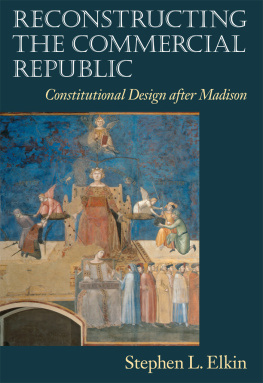


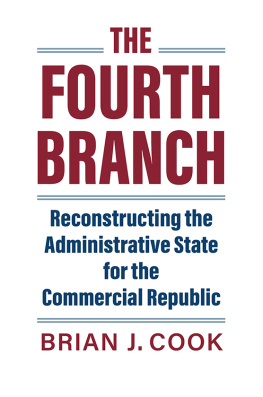
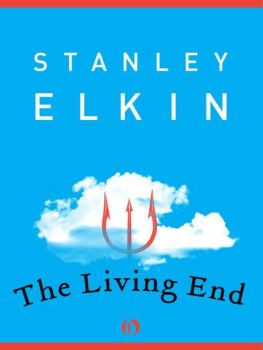

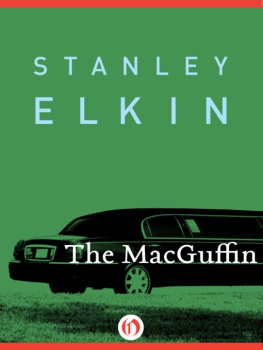
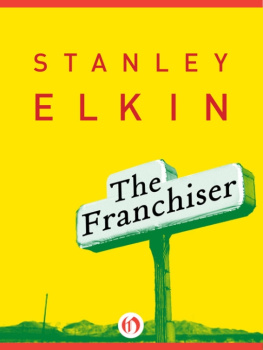



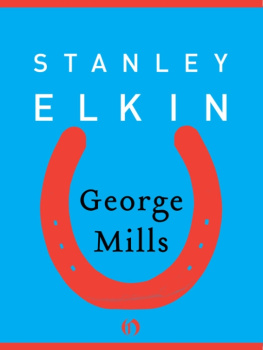

 The paper used in this publication meets the minimum requirements of the American National Standard for Information SciencesPermanence of Paper for Printed Library Materials, ANSI Z39.48-1992.
The paper used in this publication meets the minimum requirements of the American National Standard for Information SciencesPermanence of Paper for Printed Library Materials, ANSI Z39.48-1992.